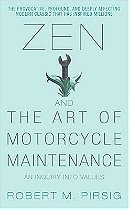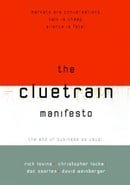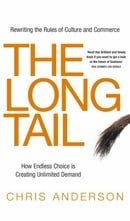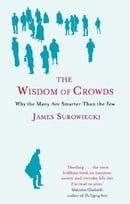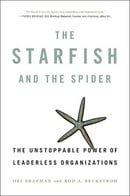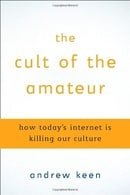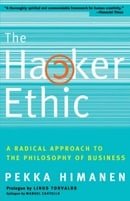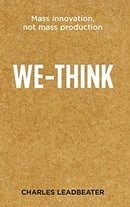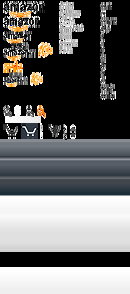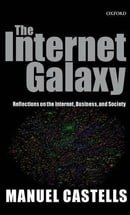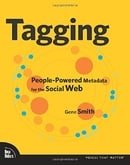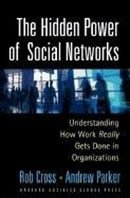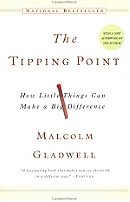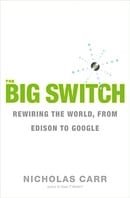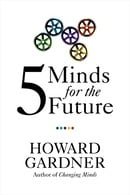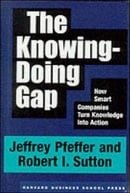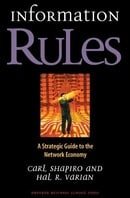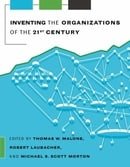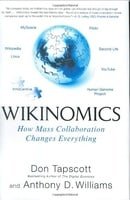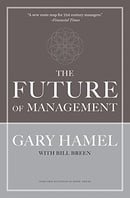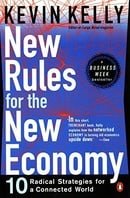PEERS ONLINE INTERACTION FRAMEWORK
Sort by:
Showing 41 items
Rating:
List Type:
The Third Wave - Alvin Toffler
The book starts off with a lengthy description of First and Second Wave civilizations. A First Wave economy is agrarian society where everyone makes their own products for their own consumption and there is little or no trading between households. A Second Wave civilization is an industrial society. Rampant specialization and economies of scale have taken over as people form into larger and larger groups like corporations and nation-states. The key indicators of a Second Wave economy are standardization, specialization, and centralization. Almost no one creates products for themselves, but instead people spend most of their time working in a factory creating products to be sold to others. This split of producer and consumer is the primary sign of a Second Wave economy and, according to Toffler, one of the major reasons for strife and chaos in the modern world.
After covering the first two economies (with most of his time spent on the second) Alvin Toffler begins his description of a Third Wave economy, which America has already started to become. (This was true at the time of the writing. I'd say it's well underway now). The key tenets of a Third Wave economy are de-massification and de-centralization. Products will no longer be standardized in huge factories, but, using new manufacturing technology, will be customized in extremely small production runs; sometimes a single unit. Consumers will have a bigger part in the creation of the products they buy, turning the producers and consumers into 'prosumers'. All bureaucratic structures will be de-centralized. National governments will divest more power to regional governments and global organizations that deal with the problems of our new world wide economy. Corporate structures will also be de-massified, giving more power (and economic payoff) to people lower on the ladder.
The key to a Third Wave civilization is flexibility: people work when they want, where they want, and for whom they want. These are all traits found in technology startups and are becoming more common in traditional industries. Flextime, tele-commuting, and stock options all fit very nicely into this future. And they are all features we should look for in prospective companies.
After covering the first two economies (with most of his time spent on the second) Alvin Toffler begins his description of a Third Wave economy, which America has already started to become. (This was true at the time of the writing. I'd say it's well underway now). The key tenets of a Third Wave economy are de-massification and de-centralization. Products will no longer be standardized in huge factories, but, using new manufacturing technology, will be customized in extremely small production runs; sometimes a single unit. Consumers will have a bigger part in the creation of the products they buy, turning the producers and consumers into 'prosumers'. All bureaucratic structures will be de-centralized. National governments will divest more power to regional governments and global organizations that deal with the problems of our new world wide economy. Corporate structures will also be de-massified, giving more power (and economic payoff) to people lower on the ladder.
The key to a Third Wave civilization is flexibility: people work when they want, where they want, and for whom they want. These are all traits found in technology startups and are becoming more common in traditional industries. Flextime, tele-commuting, and stock options all fit very nicely into this future. And they are all features we should look for in prospective companies.
hennis's rating:


And what is good, Phædrus,
And what is not good...
Need we ask anyone to tell us these things?
A narration of a summer motorcycle trip undertaken by a father and his son, the book becomes a personal and philosophical odyssey into fundamental questions of how to live. The narrator's relationship with his son leads to a powerful self-reckoning; the craft of motorcycle maintenance leads to an austerely beautiful process for reconciling science, religion, and humanism.
Arguably one of the most profoundly important essays ever written on the nature and significance of "quality" and definitely a necessary anodyne to the consequences of a modern world pathologically obsessed with quantity. Although set as a story of a cross-country trip on a motorcycle by a father and son, it is more nearly a journey through 2,000 years of philosophy.
And what is not good...
Need we ask anyone to tell us these things?
A narration of a summer motorcycle trip undertaken by a father and his son, the book becomes a personal and philosophical odyssey into fundamental questions of how to live. The narrator's relationship with his son leads to a powerful self-reckoning; the craft of motorcycle maintenance leads to an austerely beautiful process for reconciling science, religion, and humanism.
Arguably one of the most profoundly important essays ever written on the nature and significance of "quality" and definitely a necessary anodyne to the consequences of a modern world pathologically obsessed with quantity. Although set as a story of a cross-country trip on a motorcycle by a father and son, it is more nearly a journey through 2,000 years of philosophy.
hennis's rating:


The Cluetrain Manifesto: The end of business as usual... - Doc Searls,Christopher Locke,Rick Levine,David Weinberger
How would you classify a book that begins with the salutation "People of Earth..."? While the captains of industry may dismiss it as mere science fiction, The Cluetrain Manifesto is definitely of this day and age. Aiming squarely at the solar plexus of corporate America, authors Christopher Locke, Rick Levine, Doc Searls and David Weinberger show how the Internet is turning business upside down. They proclaim that, thanks to conversations taking place on Web sites and message boards, and in e-mail and chat rooms, employees and customers alike have found voices that undermine the traditional command-and-control hierarchy that organizes most corporate marketing groups. "Markets are conversations", the authors write, and those conversations are "getting smarter and faster than most companies". In their view, the lowly customer service rep wields far more power and influence in today's marketplace than the well-oiled front office PR machine.
The Cluetrain Manifesto began as a Web site (www.cluetrain.com) in 1999 when the authors, who have worked variously at IBM, Sun Microsystems, the Linux Journal and NPR, posted 95 theses that pronounced what they felt was the new reality of the networked marketplace. For example, thesis no.2: "Markets consist of human beings, not demographic sectors"; thesis no.20: "Companies need to realize their markets are often laughing. At them"; thesis no. 62: "Markets do not want to talk to flacks and hucksters. They want to participate in the conversations going on behind the corporate firewall"; thesis no. 74: "We are immune to advertising. Just forget it". The book enlarges on these themes through seven essays filled with dozens of stories and observations about how business gets done in America and how the Internet will change it all. While Cluetrain will strike many as loud and over the top, the message itself remains quite relevant and unique.
The Cluetrain Manifesto began as a Web site (www.cluetrain.com) in 1999 when the authors, who have worked variously at IBM, Sun Microsystems, the Linux Journal and NPR, posted 95 theses that pronounced what they felt was the new reality of the networked marketplace. For example, thesis no.2: "Markets consist of human beings, not demographic sectors"; thesis no.20: "Companies need to realize their markets are often laughing. At them"; thesis no. 62: "Markets do not want to talk to flacks and hucksters. They want to participate in the conversations going on behind the corporate firewall"; thesis no. 74: "We are immune to advertising. Just forget it". The book enlarges on these themes through seven essays filled with dozens of stories and observations about how business gets done in America and how the Internet will change it all. While Cluetrain will strike many as loud and over the top, the message itself remains quite relevant and unique.
hennis's rating:


The Long Tail: How Endless Choice is Creating Unlimited Demand... - Chris Anderson
What happens when there is almost unlimited choice? When everything becomes available to everyone? And when the combined value of the millions of items that only sell in small quantities equals or even exceeds the value of a handful of best-sellers? In this ground-breaking book, Chris Anderson shows that the future of business does not lie in hits - the high-volume end of a traditional demand curve - but in what used to be regarded as misses - the endlessly long tail of that same curve. As our world is transformed by the Internet and the near infinite choice it offers consumers, so traditional business models are being overturned and new truths revealed about what consumers want and how they want to get it. Chris Anderson first explored the Long Tail in an article in "Wired" magazine that has become one of the most influential business essays of our time. Now, in this eagerly anticipated book, he takes a closer look at the new economics of the Internet age, showing where business is going and exploring the huge opportunities that exist: for new producers, new e-tailers, and new tastemakers.
Chris Anderson demonstrates how long tail economics apply to industries ranging from the toy business to advertising to kitchen appliances. He sets down the rules for operating in a long tail economy. And he provides a glimpse of a future that's already here.
Chris Anderson demonstrates how long tail economics apply to industries ranging from the toy business to advertising to kitchen appliances. He sets down the rules for operating in a long tail economy. And he provides a glimpse of a future that's already here.
hennis's rating:


The Wisdom of Crowds: Why the Many Are Smarter Than the Few... - James Surowiecki
Smart people often believe that the opinion of the crowd is always inferior to the opinion of the individual specialist. Philosophical giants such as Nietzsche thought that "Madness is the exception in individuals but the rule in groups". Henry David Thoreau lamented: "The mass never comes up to the standard of its best member but on the contrary degrades itself to a level with the lowest member." The motto of the great and the ordinary seems to be: Bet on the expert because crowds are generally stupid and often dangerous. Business columnist James Surowiecki’s new book The Wisdom of Crowds explains exactly why the conventional wisdom is wrong. The fact is that, under the right circumstances, groups are remarkably intelligent, and are often smarter than the smartest people in them. Groups don’t even need to be dominated by exceptionally intelligent people in order to be smart. Even if most of the people within a group are not especially well-informed or rational, it can still reach a collectively wise decision. Why? Because, as it turns out, if you ask a large enough group of diverse, independent people to make a prediction or estimate a probability, and then average those estimates, the errors each of them makes in coming up with an answer will cancel themselves out. Not any old crowd will do of course. For the crowd to be wise it has to satisfy four specific conditions, but once those conditions are met, its judgment is likely to be accurate.
Surowieki concentrates on three kinds of problems. The first are cognition problems (problems that are likely to have definitive answers, such as: "How many books will Amazon sell this month?"). The second are problems of coordination (problems requiring members of a group to figure out how to coordinate their behaviour with one another) and the third are problems of cooperation (getting self-interested, distrustful people to work together-- despite their selfishness). The brilliant first half of the book illustrates this theory with practical examples. The second half of the book essentially consists of case studies with each chapter talking about the way collective intelligence either flourishes or flounders. Much of this part deals with business topics such as corporations, markets and the dynamics of a stock-market bubble.
Surowieki has an engaging, direct style defending his surprising central thesis in entertaining ways by, for example, talking about laying bets on football games and political elections; traffic jams; Google; the Challenger explosion and the search for a missing submarine. The Wisdom of Crowds is an entertaining book making a serious point and by the end of the superb first half the reader has been made to accept that, while with most things, the average is mediocrity, when it comes to decision-making the average results in excellence.
Surowieki concentrates on three kinds of problems. The first are cognition problems (problems that are likely to have definitive answers, such as: "How many books will Amazon sell this month?"). The second are problems of coordination (problems requiring members of a group to figure out how to coordinate their behaviour with one another) and the third are problems of cooperation (getting self-interested, distrustful people to work together-- despite their selfishness). The brilliant first half of the book illustrates this theory with practical examples. The second half of the book essentially consists of case studies with each chapter talking about the way collective intelligence either flourishes or flounders. Much of this part deals with business topics such as corporations, markets and the dynamics of a stock-market bubble.
Surowieki has an engaging, direct style defending his surprising central thesis in entertaining ways by, for example, talking about laying bets on football games and political elections; traffic jams; Google; the Challenger explosion and the search for a missing submarine. The Wisdom of Crowds is an entertaining book making a serious point and by the end of the superb first half the reader has been made to accept that, while with most things, the average is mediocrity, when it comes to decision-making the average results in excellence.
The Starfish and the Spider: The Unstoppable Power of Leaderless Organizations... - Ori Brafman,Rod A. Beckstrom
This work provides an understanding of the amazing force that links some of today's most successful companies. If you cut off a spider's leg, it's crippled; if you cut off it's head, it dies. But if you cut off a starfish's leg it grows a new one, and the old leg can grow into an entirely new starfish. Some organisations are just as decentralised as starfish, with no control centre or grand strategy. Think of craigslist and the original Napster, run totally by their own customers. Or Alcoholics Anonymous, which has thrived for decades as a loose network of small groups. Or even al Qaeda, which is so hard to destroy because its cells function independently. "The Starfish and the Spider", based on groundbreaking research into decentralised organisations, proves that this type of leadership is primed to change the world. Major companies like eBay, IBM, Sun, and GE are starting to decentralise, with great results. Decentralisation isn't easy for people who are used to the classic chain of commence organisation. But as readers will learn through this book's fascinating stories - ranging from the music business to geopolitics - it can be a very dangerous trend to ignore.
In today's self-broadcasting culture, where amateurism is celebrated and anyone with an opinion, however ill-informed, can publish a blog, post a video on YouTube, or change an entry on Wikipedia, the distinction between trained expert and uninformed amateur becomes dangerously blurred. When anonymous bloggers and videographers, unconstrained by professional
standards or editorial filters, can alter the public debate and manipulate public opinion, truth becomes a commodity to be bought, sold, packaged, and reinvented.
Our "cut-and-paste" online culture--in which intellectual property is freely swapped, downloaded, remashed, and aggregated--threatens over 200 years of copyright protection and intellectual property rights, robbing artists, authors, journalists, musicians, editors, and producers of the fruits of their creative labours. Further, advertising revenue is being
siphoned off by free classified ads on sites like Craigslist; television networks are under attack from free user-generated programming on YouTube
and the like; file-sharing and digital piracy have devastated the multibillion-dollar music business and threaten to undermine our movie
industry.
The very anonymity that Web 2.0 offers calls into question the reliability of the information we receive and creates an environment in which sexual
predators and identity thieves can roam free. While no Luddite--Keen pioneered several Internet startups himself--he urges us to consider the
consequences of blindly supporting a culture that endorses plagiarism and piracy and that fundamentally weakens traditional media and creative institutions.
Not recommended. It is a Keen-Bubble.
standards or editorial filters, can alter the public debate and manipulate public opinion, truth becomes a commodity to be bought, sold, packaged, and reinvented.
Our "cut-and-paste" online culture--in which intellectual property is freely swapped, downloaded, remashed, and aggregated--threatens over 200 years of copyright protection and intellectual property rights, robbing artists, authors, journalists, musicians, editors, and producers of the fruits of their creative labours. Further, advertising revenue is being
siphoned off by free classified ads on sites like Craigslist; television networks are under attack from free user-generated programming on YouTube
and the like; file-sharing and digital piracy have devastated the multibillion-dollar music business and threaten to undermine our movie
industry.
The very anonymity that Web 2.0 offers calls into question the reliability of the information we receive and creates an environment in which sexual
predators and identity thieves can roam free. While no Luddite--Keen pioneered several Internet startups himself--he urges us to consider the
consequences of blindly supporting a culture that endorses plagiarism and piracy and that fundamentally weakens traditional media and creative institutions.
Not recommended. It is a Keen-Bubble.
hennis's rating:


Everything is Miscellaneous: The Power of the New Digital Disorder... - David Weinberger
Business visionary and bestselling author David Weinberger charts how as business, politics, science, and media move online, the rules of the physical world - in which everything has a place - are upended. In the digital world, everything has its places, with transformative effects: Information is now a social asset and should be made public, for anyone to link, organize, and make more valuable; There's no such thing as "too much" information. More information gives people the hooks to find what they need; Messiness is a digital virtue, leading to new ideas, efficiency, and social knowledge; Authorities are less important than buddies. Rather than relying on businesses or reviews for product information, customers trust people like themselves.With the shift to digital music standing as the model for the future in virtually every industry, "Everything Is Miscellaneous" shows how anyone can reap rewards from the rise of digital knowledge.
Despite the title The Hacker Ethic is a philosophical essay contrasting the Western capitalist world view with those of hackers. In this context, hackers are those passionate about any subject, not just computers.
The book starts with an essay by Linus Torvalds and finishes with a thoughtful 75-page essay by Manual Cassels called "Informationalism and the Network Society". At its heart though, is the paradox summed up on page 60, "Present capitalism is based on the exploitation of scientific communism". This simply means companies make money based on information provided by scientists for free. This results in an ethical quandary. Companies eagerly seize information freely provided by hackers yet withhold information discovered by themselves. An indefensible position.
Himamen claims hackers work because what they're doing interests them and disseminating what they learn brings the respect of their peers while others work for money and enjoy the envy of their peers. His arguments are well illustrated with ideas from Plato, through medieval village life, protestantism, academia, the industrial revolution and more. He concludes the information revolution makes work central to our lives, soaking up the time and energy necessary for play, for the pursuit of personal passions.
He isn't whistling "Dixie". Who do you know with a hobby? How many talk to their families? Most spend their free time watching actors pretend to be members of passionate families. This is essential reading for anyone who wonders what their life is about.
The book starts with an essay by Linus Torvalds and finishes with a thoughtful 75-page essay by Manual Cassels called "Informationalism and the Network Society". At its heart though, is the paradox summed up on page 60, "Present capitalism is based on the exploitation of scientific communism". This simply means companies make money based on information provided by scientists for free. This results in an ethical quandary. Companies eagerly seize information freely provided by hackers yet withhold information discovered by themselves. An indefensible position.
Himamen claims hackers work because what they're doing interests them and disseminating what they learn brings the respect of their peers while others work for money and enjoy the envy of their peers. His arguments are well illustrated with ideas from Plato, through medieval village life, protestantism, academia, the industrial revolution and more. He concludes the information revolution makes work central to our lives, soaking up the time and energy necessary for play, for the pursuit of personal passions.
He isn't whistling "Dixie". Who do you know with a hobby? How many talk to their families? Most spend their free time watching actors pretend to be members of passionate families. This is essential reading for anyone who wonders what their life is about.
hennis's rating:


With the radical changes in information production that the Internet has introduced, we stand at an important moment of transition, says Yochai Benkler in this thought-provoking book. The phenomenon he describes as social production is reshaping markets, while at the same time offering new opportunities to enhance individual freedom, cultural diversity, political discourse, and justice. But these results are by no means inevitable: a systematic campaign to protect the entrenched industrial information economy of the last century threatens the promise of today’s emerging networked information environment.
In this comprehensive social theory of the Internet and the networked information economy, Benkler describes how patterns of information, knowledge, and cultural production are changing—and shows that the way information and knowledge are made available can either limit or enlarge the ways people can create and express themselves. He describes the range of legal and policy choices that confront us and maintains that there is much to be gained—or lost—by the decisions we make today.
In this comprehensive social theory of the Internet and the networked information economy, Benkler describes how patterns of information, knowledge, and cultural production are changing—and shows that the way information and knowledge are made available can either limit or enlarge the ways people can create and express themselves. He describes the range of legal and policy choices that confront us and maintains that there is much to be gained—or lost—by the decisions we make today.
hennis's rating:


We-Think: Mass Innovation, Not Mass Production: The Power of Mass Creativity... - Charles Leadbeater
We Think explores how the web is changing our world, creating a culture in which more people than ever can participate, share and collaborate, ideas and information.
Ideas take life when they are shared. That is why the web is such a potent platform for creativity and innovation.
It's also at the heart of why the web should be good for: democracy, by giving more people a voice and the ability to organise themselves; freedom, by giving more people the opportunity to be creative and equality, by allowing knowledge to be set free.
But sharing also brings with it dilemmas.
It leaves us more open to abus and invasions of privacy.
Participation is not always a good thing: it can just create a cacophony.
Collaboration is sustained and reliable only under conditions which allow for self organisation.
Everywhere we turn there will be struggles between people who want to freely share - music, films, ideas, information - and those who want to control this activity, either corporations who want to make money or governments who fear debate and democracy. This conflict between the rising surge of mass collaboration and attempts to retain top down control will be one of the defining battles of our time, from Communist China, to Microsoft's battle with open source and the music industry's desperate rearguard action against the web.
Ideas take life when they are shared. That is why the web is such a potent platform for creativity and innovation.
It's also at the heart of why the web should be good for: democracy, by giving more people a voice and the ability to organise themselves; freedom, by giving more people the opportunity to be creative and equality, by allowing knowledge to be set free.
But sharing also brings with it dilemmas.
It leaves us more open to abus and invasions of privacy.
Participation is not always a good thing: it can just create a cacophony.
Collaboration is sustained and reliable only under conditions which allow for self organisation.
Everywhere we turn there will be struggles between people who want to freely share - music, films, ideas, information - and those who want to control this activity, either corporations who want to make money or governments who fear debate and democracy. This conflict between the rising surge of mass collaboration and attempts to retain top down control will be one of the defining battles of our time, from Communist China, to Microsoft's battle with open source and the music industry's desperate rearguard action against the web.
The first book to explore the hot new science of networks and their impact on nature, business, medicine, and everyday life. }In the 1980's, James Gleick's Chaos introduced the world to complexity. Now, Albert-Lszl Barabsi's Linked reveals the next major scientific leap: the study of networks. We've long suspected that we live in a small world, where everything is connected to everything else. Indeed, networks are pervasive--from the human brain to the Internet to the economy to our group of friends. These linkages, it turns out, aren't random. All networks, to the great surprise of scientists, have an underlying order and follow simple laws. Understanding the structure and behavior of these networks will help us do some amazing things, from designing the optimal organization of a firm to stopping a disease outbreak before it spreads catastrophically.In Linked, Barabsi, a physicist whose work has revolutionized the study of networks, traces the development of this rapidly unfolding science and introduces us to the scientists carrying out this pioneering work.
These "new cartographers" are mapping networks in a wide range of scientific disciplines, proving that social networks, corporations, and cells are more similar than they are different, and providing important new insights into the interconnected world around us. This knowledge, says Barabsi, can shed light on the robustness of the Internet, the spread of fads and viruses, even the future of democracy. Engaging and authoritative, Linked provides an exciting preview of the next century in science, guaranteed to be transformed by these amazing discoveries.From Linked:This book has a simple message: think networks. It is about how networks emerge, what they look like, and how they evolve. It aims to develop a web-based view of nature, society, and technology, providing a unified framework to better understand issues ranging from the vulnerability of the Internet to the spread of diseases. Networks are present everywhere. All we need is an eye for them...We will see the challenges doctors face when they attempt to cure a disease by focusing on a single molecule or gene, disregarding the complex interconnected nature of the living matter.
We will see that hackers are not alone in attacking networks: we all play Goliath, firing shots at a fragile ecological network that, without further support, could soon replicate our worst nightmares by turning us into an isolated group of species...Linked is meant to be an eye-opening trip that challenges you to walk across disciplines by stepping out of the box of reductionism. It is an invitation to explore link by link the next scientific revolution: the new science of networks. }
These "new cartographers" are mapping networks in a wide range of scientific disciplines, proving that social networks, corporations, and cells are more similar than they are different, and providing important new insights into the interconnected world around us. This knowledge, says Barabsi, can shed light on the robustness of the Internet, the spread of fads and viruses, even the future of democracy. Engaging and authoritative, Linked provides an exciting preview of the next century in science, guaranteed to be transformed by these amazing discoveries.From Linked:This book has a simple message: think networks. It is about how networks emerge, what they look like, and how they evolve. It aims to develop a web-based view of nature, society, and technology, providing a unified framework to better understand issues ranging from the vulnerability of the Internet to the spread of diseases. Networks are present everywhere. All we need is an eye for them...We will see the challenges doctors face when they attempt to cure a disease by focusing on a single molecule or gene, disregarding the complex interconnected nature of the living matter.
We will see that hackers are not alone in attacking networks: we all play Goliath, firing shots at a fragile ecological network that, without further support, could soon replicate our worst nightmares by turning us into an isolated group of species...Linked is meant to be an eye-opening trip that challenges you to walk across disciplines by stepping out of the box of reductionism. It is an invitation to explore link by link the next scientific revolution: the new science of networks. }
Six Degrees: The Science of a Connected Age - Duncan Watts
You may be only six degrees away from Kevin Bacon, but would he lend you his car? It depends on the network that links you. In Six Degrees, sociologist Duncan Watts examines networks like these: what they are, how they're being studied, and what we can use them for. When the power goes out, when we find that a stranger knows someone we know, when dot-com stocks soar in price, networks are evident. To illustrate the often complicated mathematics that describe such structures, Watts uses plenty of examples from real life, without which this book would quickly move beyond a general science readership. Small chapters make each thought-provoking conclusion easy to swallow, though some are hard to digest. For instance, in a short bit on "coercive externalities", Watts sums up sociological research showing that:
Conversations concerning politics displayed a consistent pattern ... On election day, the strongest predictor of electoral success was not which party an individual privately supported but which party he or she expected would win."
Six Degrees attempts to help readers understand the new and exciting field of networks and complexity. While considerably more demanding than a general book such as The Tipping Point, it offers readers a snapshot of a riveting moment in science, when understanding things such as disease epidemics and the stock market seems almost within our reach.
Conversations concerning politics displayed a consistent pattern ... On election day, the strongest predictor of electoral success was not which party an individual privately supported but which party he or she expected would win."
Six Degrees attempts to help readers understand the new and exciting field of networks and complexity. While considerably more demanding than a general book such as The Tipping Point, it offers readers a snapshot of a riveting moment in science, when understanding things such as disease epidemics and the stock market seems almost within our reach.
Based on the author's Clarendon Lectures in Management at Oxford University, this work focuses on the Internet and the future of networked societies. More specifically, Castells (sociology, Univ. of California, Berkeley; The Information Age: Economy, Society, and Culture) examines cultures spawned by the Internet as well as the Internet's effects on culture. He provides balanced coverage of e-business and the new economy; the politics of the Internet, including privacy and freedom; and the geography of the Internet. Thereafter, he considers how those topics have influenced the globalization of the Internet and the growing digital divide. This thoroughly researched volume features numerous international examples and statistics that effectively illustrate key points and make the book truly global in scope. With his knack for analyzing contemporary society, Castells has produced a timely book indeed.
hennis's rating:


The story of a dazzling kind of order in the universe, the harmony that comes from cycles in sync. The tendency to synchronize is one of the most far-reaching drives in all of nature. It extends from people to planets, from animals to atoms. In "Sync" Professor Steven Strogatz considers a range of applications - human sleep and circadian rhythms, menstrual synchrony, insect outbreaks, superconductors, lasers, secret codes, heart arrhythmias and fads - connecting all through an exploration of the same mathematical theme: self-organization, or the spontaneous emergence of order out of chaos. Focused enough to present a coherent world unto themselves, Strogatz's chosen topics touch on several of the hottest directions in contemporary science.
Tagging is fast becoming one of the primary ways people organize and manage digital information. Tagging complements traditional organizational tools like folders and search on users desktops as well as on the web. These developments mean that tagging has broad implications for information management, information architecture and interface design. And its reach extends beyond these technical domains to our culture at large. We can imagine, for example, the scrapbookers of the future curating their digital photos, emails, ticket stubs and other mementos with tags. This book explains the value of tagging, explores why people tag, how tagging works and when it can be used to improve the user experience. It exposes tagging's superficial simplicity to reveal interesting issues related to usability, information architecture, online community and collective intelligence.
The Hidden Power of Social Networks: Understanding How Work Really Gets Done in Organizations... - Andrew Parker,Rob Cross
A powerful, visual framework helps managers discover how employees really communicate and collaborate to get work done - and helps them identify ways they can influence these social networks to improve performance and innovation. In "The Hidden Power of Social Networks", Cross and Parker, experts in "social network analysis" - a technique that visually maps relationships between people in large, distributed groups - apply this powerful tool to management for the first time. Based on their in-depth study of sixty informal employee networks in well-known companies around the world, Cross and Parker show managers how to conduct a social network analysis of their organization.
The Tipping Point: How Little Things Can Make a Big Difference... - Malcolm Gladwell
"The best way to understand the dramatic transformation of unknown books into bestsellers, or the rise of teenage smoking, or the phenomena of word of mouth or any number of the other mysterious changes that mark everyday life," writes Malcolm Gladwell, "is to think of them as epidemics. Ideas and products and messages and behaviours spread just like viruses do." Although anyone familiar with the theory of mimetics will recognise this concept, Gladwell's The Tipping Point has quite a few interesting twists on the subject.
For example, Paul Revere was able to galvanise the forces of resistance so effectively in part because he was what Gladwell calls a "Connector": he knew just about everybody, particularly the revolutionary leaders in each of the towns that he rode through. But Revere "wasn't just the man with the biggest Rolodex in colonial Boston", he was also a "Maven" who gathered extensive information about the British. He knew what was going on and he knew exactly whom to tell. The phenomenon continues to this day--think of how often you've received information in an e-mail message that had been forwarded at least half a dozen times before reaching you.
Gladwell develops these and other concepts (such as the "stickiness" of ideas or the effect of population size on information dispersal) through simple, clear explanations and entertainingly illustrative anecdotes, such as comparing the pedagogical methods of Sesame Street and Blue's Clues, or explaining why it would be even easier to play Six Degrees of Kevin Bacon with the actor Rod Steiger. Although some readers may find the transitional passages between chapters hold their hands a little too tightly, and Gladwell's closing invocation of the possibilities of social engineering sketchy, even chilling, The Tipping Point is one of the most effective books on science for a general audience in ages. It seems inevitable that "tipping point", like "future shock" or "chaos theory," will soon become one of those ideas that everybody knows--or at least knows by name.
For example, Paul Revere was able to galvanise the forces of resistance so effectively in part because he was what Gladwell calls a "Connector": he knew just about everybody, particularly the revolutionary leaders in each of the towns that he rode through. But Revere "wasn't just the man with the biggest Rolodex in colonial Boston", he was also a "Maven" who gathered extensive information about the British. He knew what was going on and he knew exactly whom to tell. The phenomenon continues to this day--think of how often you've received information in an e-mail message that had been forwarded at least half a dozen times before reaching you.
Gladwell develops these and other concepts (such as the "stickiness" of ideas or the effect of population size on information dispersal) through simple, clear explanations and entertainingly illustrative anecdotes, such as comparing the pedagogical methods of Sesame Street and Blue's Clues, or explaining why it would be even easier to play Six Degrees of Kevin Bacon with the actor Rod Steiger. Although some readers may find the transitional passages between chapters hold their hands a little too tightly, and Gladwell's closing invocation of the possibilities of social engineering sketchy, even chilling, The Tipping Point is one of the most effective books on science for a general audience in ages. It seems inevitable that "tipping point", like "future shock" or "chaos theory," will soon become one of those ideas that everybody knows--or at least knows by name.
Here Comes Everybody - Clay Shirky
A woman loses her phone, and recruits an army of volunteers to get it back. A dissatisfied airline passenger spawns a movement with her web log. Citizens with camera-phones are more effective than photojournalists at documenting the London Transport bombings. The world's largest encyclopedia is created by unmanaged participants. A handful of kids in Belarus create a political protest the state is powerless to stop ...Everywhere you look, groups of people are coming together to share with one another, work together, or take some kind of public action. For the first time in history, we have tools that truly allow for this.In the same way the printing press amplified the individual mind and the telephone amplified two-way conversation, now a host of new tools, from instant messages and mobile phones to weblogs and wikis, amplify group communication. And because we are natively good at working in groups, this amplification of group effort will change more than business models: it will change society. What does it mean that someone with a laptop can spark a movement that changes the fortunes of a billion-dollar-industry or help topple a government?
This profound and larger social impact is only now being explored. In "Here Comes Everybody" Clay Shirky, one of the new culture's wisest observers, give us his lucid and penetrating analysis on what the impact of this social revolution will be - for better or worse - on what we do, and who we are.
This profound and larger social impact is only now being explored. In "Here Comes Everybody" Clay Shirky, one of the new culture's wisest observers, give us his lucid and penetrating analysis on what the impact of this social revolution will be - for better or worse - on what we do, and who we are.
The Big Switch: Rewiring the World, from Edison to Google... - Nicholas Carr
In this eye-opening look at the new computer revolution and its consequences, Nicholas Carr explains why computing is changing and what this means for all of us.A hundred years ago, companies stopped producing their own power and plugged into the newly built electric grid. The cheap power pumped out by electricity providers not only changed how businesses operated but also brought the modern world into existence. Today a similar revolution is under way as companies dismantle their private computer systems and tap into rich services delivered over the Internet. Computing is turning into a utility. The shift is remaking the computer industry, bringing competitors like Google to the fore and threatening traditional stalwarts like Microsoft. The effects will reach further as cheap computing changes society as profoundly as cheap electricity did. In this lucid and compelling book Carr weaves together history, economics and technology to explain the "big switch".
Five Minds for the Future - Howard Gardner
Psychologist, author and Harvard professor Gardner (Multiple Intelligences: New Horizons) has put together a thought-provoking, visionary attempt to delineate the kinds of mental abilities ("minds") that will be critical to success in a 21st century landscape of accelerating change and information overload. Gardner's five minds-disciplined, synthesizing, creating, respectful and ethical-are not personality types, but ways of thinking available to anyone who invests the time and effort to cultivate them: "how we should use our minds." In presenting his "values enterprise," Gardner uses a variety of explanatory models, from developmental psychology to group dynamics, demonstrating their utility not just for individual development, but for tangible success in a full range of human endeavors, including education, business, science, art, politics and engineering.
The Knowing-Doing Gap: How Smart Companies Turn Knowledge into Action... - Robert I. Sutton,Jeffrey Pfeffer
The authors identify the causes of the knowing-doing gap and explain how to close it. They describe the most common obstacles to action--such as fear and inertia--and profile successful companies that overcome them. A great resource for personal improvement. Each chapter contains tips on what to do and what to avoid, and provides examples of how a lethargic company culture can be transformed. The Knowing-Doing Gap is a useful how-to guide for managers looking to make changes. A wealth of knowledge worth reading.
WikiPatterns - Stewart Mader
A combination of a web page and a Word document, a wiki is a tool that's simple like email but powerful enough to reduce your cluttered inbox and busy meeting schedule. Wikipatterns will help you learn how to build a 21st-century tool for collaboration, whether your team is in the same office or split among offices around the world. Wikis can transform business collaboration, and you'll learn the ins and outs of making the most of this enduring collaboration tool. This book answers questions like:
* What is a wiki?
* How does an organization's wiki differ from Wikipedia?
* How do I make a case for using a wiki?
* What's the best way to get started?
* How do wikis change an organization's culture?
* How do wikis "fit" with other collaboration tools?
* What are the patterns of use and behavior that positively and negatively affect the wiki?
* How do I encourage participation and make the wiki "stick" as an idea and a tool?
* What is a wiki?
* How does an organization's wiki differ from Wikipedia?
* How do I make a case for using a wiki?
* What's the best way to get started?
* How do wikis change an organization's culture?
* How do wikis "fit" with other collaboration tools?
* What are the patterns of use and behavior that positively and negatively affect the wiki?
* How do I encourage participation and make the wiki "stick" as an idea and a tool?
Knowing Knowledge - George Siemens
Learning and knowledge are cornerstones for society and organizations. Knowing Knowledge is an exploration of the change impacting both learning and knowledge, and recommends changes required in order to align corporations and educational institutions with developing trends.
hennis's rating:


This book presents a theory of learning that starts with the assumption that engagement in social practice is the fundamental process by which we get to know what we know and by which we become who we are. The primary unit of analysis of this process is neither the individual nor social institutions, but the informal 'communities of practice' that people form as they pursue shared enterprises over time. To give a social account of learning, the theory explores in a systematic way the intersection of issues of community, social practice, meaning, and identity. The result is a broad framework for thinking about learning as a process of social participation. This ambitious but thoroughly accessible framework has relevance for the practitioner as well as the theoretician, presented with all the breadth, depth, and rigor necessary to address such a complex and yet profoundly human topic.
Cultivating Communities of Practice - William Snyder,Richard McDermott,Etienne Wenger
Among the myriad challenges managers in large corporations face today, one is becoming increasingly important: how to make the best use of the knowledge that a company's employees possess. The authors consultants all lift models from Xerox, DaimlerChrysler and the World Bank to show how to tap into the wisdom within, making this book helpful, in theory. Wenger, McDermott and Snyder spend much time explaining ways to organize, maintain and sustain communities of practice, which they define as groups that "share a concern, a set of problems, or a passion about a topic, and... deepen their knowledge and expertise in this area by interacting on an ongoing basis." Laying out a logical, step-by-step process for building one of these communities, the authors define specific roles for each member of the group. But senior managers looking, as the subtitle suggests, for "a guide to managing knowledge" may be disappointed in the scant space actually devoted to developing a system that captures and manages the learning that comes out of a "community of practice." Managers seeking the best way to obtain and use the knowledge coming out of these groups probably won't find it here. (Mar. 6)Forecast: Wenger is the biggest name in the theory of communities of practice, and those familiar with his work will want to add this book to their collection. Neophytes would do better with his 1998 primer, Communities of Practice.
hennis's rating:


This study examines how learning and cognitive change are fostered by online communities. The chapters provide a basis for thinking about the dynamics of Internet community building. They consider the role of the self or individual as a participant in virtual community, and the design and refinement of technology as the conduit for extending and enhancing the possibilities of community building in cyberspace. The volume will interest educators, psychologists, sociologists, and researchers in human-computer interaction.
"Maybe the underling by the water-cooler is your most valuable asset-How would you know?" "Forbes." "Network science is hot right now." "The Times" Network Science might well prove to be the next big buzz in management. "The Bookseller" How and where do things really get done in your business? Who are your visionaries, back-stabbers and unsung heroes? Where do ideas start and initiatives really get stuck? Real working knowledge lies in the relationships between employees. Your organizational chart will tell you about authority, but it doesn't always show how things get done, created or communicated. You know the rules, but you don't know the ropes. For that, you need a map to the network, the corresponding informal structure that is usually invisible. Networks generate innovations, refine processes, build or undermine values and support or frustrate strategies. Companies around the world are beginning to learn that they can profit by analyzing these invisible networks, and understanding their impact.In The Quantum Theory of Trust, the World's leading expert on network science, Karen Stephenson, introduces the analysis of networks to identify the personalities and patterns of organisations, and shows how to manage the personal currency that counts in good networks: trust.
Infotopia: How Many Minds Produce Knowledge - Cass R. Sunstein
The rise of the "information society" offers not only considerable peril but also great promise. Beset from all sides by a never-ending barrage of media, how can we ensure that the most accurate information emerges and is heeded? In this book, Cass R. Sunstein develops a deeply optimistic understanding of the human potential to pool information, and to use that knowledge to improve our lives. In an age of information overload, it is easy to fall back on our own prejudices and insulate ourselves with comforting opinions that reaffirm our core beliefs. Crowds quickly become mobs. The justification for the Iraq war, the collapse of Enron, the explosion of the space shuttle Columbia-all of these resulted from decisions made by leaders and groups trapped in "information cocoons," shielded from information at odds with their preconceptions. How can leaders and ordinary people challenge insular decision making and gain access to the sum of human knowledge?
Stunning new ways to share and aggregate information, many Internet-based, are helping companies, schools, governments, and individuals not only to acquire, but also to create, ever-growing bodies of accurate knowledge.Through a ceaseless flurry of self-correcting exchanges, wikis, covering everything from politics and business plans to sports and science fiction subcultures, amass-and refine-information. Open-source software enables large numbers of people to participate in technological development. Prediction markets aggregate information in a way that allows companies, ranging from computer manufacturers to Hollywood studios, to make better decisions about product launches and office openings. Sunstein shows how people can assimilate aggregated information without succumbing to the dangers of the herd mentality--and when and why the new aggregation techniques are so astoundingly accurate. In a world where opinion and anecdote increasingly compete on equal footing with hard evidence, the on-line effort of many minds coming together might well provide the best path to infotopia.
Stunning new ways to share and aggregate information, many Internet-based, are helping companies, schools, governments, and individuals not only to acquire, but also to create, ever-growing bodies of accurate knowledge.Through a ceaseless flurry of self-correcting exchanges, wikis, covering everything from politics and business plans to sports and science fiction subcultures, amass-and refine-information. Open-source software enables large numbers of people to participate in technological development. Prediction markets aggregate information in a way that allows companies, ranging from computer manufacturers to Hollywood studios, to make better decisions about product launches and office openings. Sunstein shows how people can assimilate aggregated information without succumbing to the dangers of the herd mentality--and when and why the new aggregation techniques are so astoundingly accurate. In a world where opinion and anecdote increasingly compete on equal footing with hard evidence, the on-line effort of many minds coming together might well provide the best path to infotopia.
Information Rules: A Strategic Guide to the Network Economy... - Hal R. Varian,Carl Shapiro
Chapter 1 of Information Rules begins with a description of the change brought on by technology at the close of the century--but the century described is not this one, it's the late 1800s. One hundred years ago, it was an emerging telephone and electrical network that was transforming business. Today it's the Internet. The point? While the circumstances of a particular era may be unique, the underlying principles that describe the exchange of goods in a free- market economy are the same. And the authors, Carl Shapiro and Hal Varian, should know. Shapiro is Professor of Business Strategy at the Haas School of Business at the University of California, Berkeley, and has also served as chief economist at the Antitrust Division of the US Justice Department. Varian is the Dean of the School of Information Management and Systems at University of California, Berkeley. Together they offer a deep knowledge of how economic systems work coupled with first-hand experience of today's network economy. They write:
Sure, today's business world is different in a myriad of ways from that of a century ago. But many of today's managers are so focused on the trees of technological change that they fail to see the forest: the underlying economic forces that determine success and failure.
Shapiro and Varian go to great lengths to purge this book of the technobabble and forecasting of an electronic "woo-woo land" that's typical in books of this genre. Instead, with their feet on the ground, they consider how to market and distribute goods in the network economy, citing examples from industries as diverse as airlines, software, entertainment and communications. The authors cover issues such as pricing, intellectual property, versioning, lock-in, compatibility, and standards. Clearly written and presented, Information Rules belongs on the bookshelf of anyone who has an interest in today's network economy--entrepreneurs, managers, investors, students. If there was ever a textbook written on how to do business in the information age, this book is it.
Sure, today's business world is different in a myriad of ways from that of a century ago. But many of today's managers are so focused on the trees of technological change that they fail to see the forest: the underlying economic forces that determine success and failure.
Shapiro and Varian go to great lengths to purge this book of the technobabble and forecasting of an electronic "woo-woo land" that's typical in books of this genre. Instead, with their feet on the ground, they consider how to market and distribute goods in the network economy, citing examples from industries as diverse as airlines, software, entertainment and communications. The authors cover issues such as pricing, intellectual property, versioning, lock-in, compatibility, and standards. Clearly written and presented, Information Rules belongs on the bookshelf of anyone who has an interest in today's network economy--entrepreneurs, managers, investors, students. If there was ever a textbook written on how to do business in the information age, this book is it.
A renowned visionary on organizational theory provides the first workable model for creating and managing within the organization of the future. Malone shows us that our current notions about decentralization and empowerment merely scratch the surface of what will be possible as technological and economic forces render "command and control" management obsolete. In its place will be a "coordinate and cultivate" approach that will spawn entirely new types of decentralized organizations - from internal markets to democracies to loose hierarchies that reap the scale and knowledge efficiencies of large organizations while enabling the freedom, flexibility, and human values that drive smaller firms.
Inventing the Organizations of the 21st Century... - Thomas W Malone
Technological changes have displaced the hierarchical corporation as the model for business organization; the large corporations of the new century are decentralizing and externalizing, creating networks of "industry ecosystems" that will replace the top-down organizations of the last century. Inventing the Organizations of the 21st Century reports on a five-year multidisciplinary research initiative conducted by MIT’s Sloan School of Management and sponsored by leading international corporations. The goal of the initiative was not only to understand the way we work now but to invent new ways of working and put them into practice.
The twenty articles in the book are organized to answer three questions. The first part, "What is changing?" examines the reasons for change and the results of change. The second part, "What can you do about it?" considers the new business strategies and organizations that technology and competition demand. The third part, "What do you want in the first place?" examines the goals that animate the initiative, which go beyond pure profit to reflect the human values we want the organizations of the twenty-first century to serve.
The twenty articles in the book are organized to answer three questions. The first part, "What is changing?" examines the reasons for change and the results of change. The second part, "What can you do about it?" considers the new business strategies and organizations that technology and competition demand. The third part, "What do you want in the first place?" examines the goals that animate the initiative, which go beyond pure profit to reflect the human values we want the organizations of the twenty-first century to serve.
Wikinomics: How Mass Collaboration Changes Everything... - Anthony D. Williams,Don Tapscott
In the last few years, traditional collaboration—in a meeting room, a conference call, even a convention center—has been superceded by collaborations on an astronomical scale.
Today, encyclopedias, jetliners, operating systems, mutual funds, and many other items are being created by teams numbering in the thousands or even millions. While some leaders fear the heaving growth of these massive online communities, Wikinomics proves this fear is folly. Smart firms can harness collective capability and genius to spur innovation, growth, and success.
A brilliant primer on one of the most profound changes of our time, Wikinomics challenges our most deeply-rooted assumptions about business and will prove indispensable to anyone who wants to understand the key forces driving competitiveness in the twenty-first century.
Based on a $9 million research project led by bestselling author Don Tapscott, Wikinomics shows how the masses of people can participate in the economy like never before. They are creating TV news stories, sequencing the human genome, remixing their favorite music, designing software, finding a cure for disease, editing school texts, inventing new cosmetics, and even building motorcycles.
Today, encyclopedias, jetliners, operating systems, mutual funds, and many other items are being created by teams numbering in the thousands or even millions. While some leaders fear the heaving growth of these massive online communities, Wikinomics proves this fear is folly. Smart firms can harness collective capability and genius to spur innovation, growth, and success.
A brilliant primer on one of the most profound changes of our time, Wikinomics challenges our most deeply-rooted assumptions about business and will prove indispensable to anyone who wants to understand the key forces driving competitiveness in the twenty-first century.
Based on a $9 million research project led by bestselling author Don Tapscott, Wikinomics shows how the masses of people can participate in the economy like never before. They are creating TV news stories, sequencing the human genome, remixing their favorite music, designing software, finding a cure for disease, editing school texts, inventing new cosmetics, and even building motorcycles.
hennis's rating:


The Future of Management - Gary Hamel
Drawing on his latest research, Hamel demonstrates that it is innovation in management—rather than in operations, products or strategies—that is most likely to create long-term advantage. Building on this insight, he describes in detail how a company can get a head start on the future by building tomorrow’s best practices today.
In The Future of Management , you will gain a detailed understanding of . . .
* The make or break challenges that will determine competitive success in an age of relentless, head-snapping change.
* The toxic effects of the industrial age management beliefs that still predominate in most companies.
* The unconventional management practices that are generating breakthrough results in a handful of “modern management pioneers.”
* The radically new management principles that must become part of every company’s “management DNA.”
* The ways in which the Internet will turn traditional management roles upside down and inside out.
* The practical steps your company can start taking now to build its own 21st century “management advantage.”
The Future of Management is richly illustrated with examples from Google, W.L. Gore, Whole Foods, IBM, Samsung, Best Buy and other blue-ribbon management innovators.
In The Future of Management , you will gain a detailed understanding of . . .
* The make or break challenges that will determine competitive success in an age of relentless, head-snapping change.
* The toxic effects of the industrial age management beliefs that still predominate in most companies.
* The unconventional management practices that are generating breakthrough results in a handful of “modern management pioneers.”
* The radically new management principles that must become part of every company’s “management DNA.”
* The ways in which the Internet will turn traditional management roles upside down and inside out.
* The practical steps your company can start taking now to build its own 21st century “management advantage.”
The Future of Management is richly illustrated with examples from Google, W.L. Gore, Whole Foods, IBM, Samsung, Best Buy and other blue-ribbon management innovators.
New Rules for the New Economy - Kevin Kelly_XXV
There's hype and then there's the Internet. The widespread emergence of the World Wide Web and the idea of a network economy have set new records for excess in overheated marketing campaigns, breathless newspaper and magazine articles, and topsy-turvy financial markets. From his perch as founding editor of Wired magazine, Kevin Kelly has long been one of the new economy's chief hypesters. In New Rules for the New Economy, wriiten in 1998, Kelly tries to encapsulate the characteristics of this emerging economic order by laying out 10 rules for how the wired world operates. The result is a dizzying, sometimes confusing, but always thought-provoking look at the behavior of networks and their effect on our economic lives. At the root of this network revolution is communication. As Kelly writes:
"Communication is the foundation of society, of our culture, of our humanity, of our own individual identity, and of all economic systems. This is why networks are such a big deal. Communication is so close to culture and society itself that the effects of technologizing it are beyond the scale of a mere industrial-sector cycle. Communication, and its ally computers, is a special case in economic history. Not because it happens to be the fashionable leading business sector of our day, but because its cultural, technological, and conceptual impacts reverberate at the root of our lives."
Kelly's genius lies in synthesizing large amounts of information in unique and interesting ways. His ability to turn a phrase is reflected in the names he gives to his 10 rules, and it makes this book a pleasure to read. Some, for example, are: "Embrace the Swarm: The Power of Decentralization" (Rule 1); "No Harmony, All Flux: Seeking Sustainable Disequilibrium" (Rule 8); and "Let Go at the Top: After Success, Devolution" (Rule 6). A few of his ideas have a kind of Teflon quality that makes them elusive and difficult to evaluate. But that's OK. Like other prognosticators of the future--Alvin Toffler and John Naisbitt come to mind--Kelly's job is to imagine a new world. Far from hype, New Rules for the New Economy is required reading for anyone pondering business in the not-too-distant future.
"Communication is the foundation of society, of our culture, of our humanity, of our own individual identity, and of all economic systems. This is why networks are such a big deal. Communication is so close to culture and society itself that the effects of technologizing it are beyond the scale of a mere industrial-sector cycle. Communication, and its ally computers, is a special case in economic history. Not because it happens to be the fashionable leading business sector of our day, but because its cultural, technological, and conceptual impacts reverberate at the root of our lives."
Kelly's genius lies in synthesizing large amounts of information in unique and interesting ways. His ability to turn a phrase is reflected in the names he gives to his 10 rules, and it makes this book a pleasure to read. Some, for example, are: "Embrace the Swarm: The Power of Decentralization" (Rule 1); "No Harmony, All Flux: Seeking Sustainable Disequilibrium" (Rule 8); and "Let Go at the Top: After Success, Devolution" (Rule 6). A few of his ideas have a kind of Teflon quality that makes them elusive and difficult to evaluate. But that's OK. Like other prognosticators of the future--Alvin Toffler and John Naisbitt come to mind--Kelly's job is to imagine a new world. Far from hype, New Rules for the New Economy is required reading for anyone pondering business in the not-too-distant future.
hennis's rating:


Free Agent Nation: The Future of Working for Yourself... - Daniel H. Pink
William Whyte's "Organization Man" has gone the way of the horse and buggy. Taking his place are more than 30 million self-employed, independent contractors and micropreneurs-free agent "dis-organization" men and women who are transforming the workplace and society in profound and invigorating ways. Yet, despite their numbers and growing influence on American culture, information about this emerging workforce, and its possible impact on the present and future, is almost nonexistent.
Free Agent Nation offers the definitive report and analysis of this socio-economic revolution and describes who the new free agents are, why they are, and how they are changing business, politics, education, and family.
Free Agent Nation offers the definitive report and analysis of this socio-economic revolution and describes who the new free agents are, why they are, and how they are changing business, politics, education, and family.
Open Innovation: The New Imperative for Creating and Profiting from Technology... - Henry W Chesbrough
The information revolution has made for a radically more fluid knowledge environment, and the growth of venture capital has created inexorable pressure towards fast commercialisation of existing technologies. Companies that don't use the technologies they develop are likely to lose them. Over the past several years, Hank Chesbrough has done excellent research and writing on the commercialisation of technology and the changing role and context for R&D. This book represents a powerful synthesis of that work in the form of a new paradigm for managing corporate research and bringing new technologies to market. Chesbrough impressively articulates his ideas and how they connect to each other, weaving several disparate areas of work R&D, corporate venturing, spinoffs, and licensing and intellectual property into a single coherent framework.
hennis's rating:


Shorter product life cycles, high product flop rates and an increasing heterogeneity of consumer needs have recently put considerable pressure on the innovation activities of manufacturers. The collaboration with users in open innovation processes has been promoted as a powerful approach for companies to succeed in today's competitive environment. However, little is known about what drives these user innovators to contribute their time and effort to the creation of new products. Yet, a deep understanding of the motivation of user innovators represents an important first step for manufacturers to improve the nature of this type of cooperation. Robert Motzek's study investigates the motivational profiles of user innovators from a manufacturer's point of view. Since lead users and tool kit users can to a very high extent be involved in the firm's innovation process, this report will focus on the integration of those two types of users. The analysis will be supported by two exploratory case studies of Spreadshirt and Threadless, two companies which have successfully based their business models on the integration of user innovators.
The study will identify the most important factors controlling user innovators' motivation and will derive suggestions on how manufacturers can address these points in order to tap the full potential of user innovation for their new product development.
The study will identify the most important factors controlling user innovators' motivation and will derive suggestions on how manufacturers can address these points in order to tap the full potential of user innovation for their new product development.
Democratizing Innovation - Eric Von Hippel
Innovation is rapidly becoming democratised. Users, aided by improvements in computer and communications technology, increasingly can develop their own new products and services. These innovating users - both individuals and firms - often freely share their innovations with others, creating user-innovation communities and a rich intellectual commons. In Democratizing Innovation, Eric von Hippel looks closely at this emerging user-centred innovation system. He explains why and when users find it profitable to develop new products and services for themselves, and why it often pays users to reveal their innovations freely for the use of all. The trend toward democratised innovation can be seen in software and information products - most notably in the free and open-source software movement - but also in physical products. Von Hippel's many examples of user innovation in action range from surgical equipment to surfboards to software security features. He shows that product and service development is concentrated among "lead users," who are ahead on marketplace trends and whose innovations are often commercially attractive.
Von Hippel argues that manufacturers should redesign their innovation processes and systematically seek out innovations developed by users. He points to businesses--the custom semiconductor industry is one example - that have learned to assist user-innovators by providing them with toolkits for developing new products. User innovation has a positive impact on social welfare, and von Hippel proposes that government policies, including R&D subsidies and tax credits, should be realigned to eliminate biases against it. The goal of a democratised user-centred innovation system, says von Hippel, is well worth striving for. An electronic version of this book is available under a Creative Commons license.
Von Hippel argues that manufacturers should redesign their innovation processes and systematically seek out innovations developed by users. He points to businesses--the custom semiconductor industry is one example - that have learned to assist user-innovators by providing them with toolkits for developing new products. User innovation has a positive impact on social welfare, and von Hippel proposes that government policies, including R&D subsidies and tax credits, should be realigned to eliminate biases against it. The goal of a democratised user-centred innovation system, says von Hippel, is well worth striving for. An electronic version of this book is available under a Creative Commons license.
hennis's rating:


The Economics of Attention: Style and Substance in the Age of Information... - Richard A. Lanham
If economics is about the allocation of resources, then what is the most precious resource in our new information economy? Certainly not information, for we are drowning in it. No, what we are short of is the attention to make sense of that information. With all the verve and erudition that have established his earlier books as classics, Richard A. Lanham, here, traces our epochal move from an economy of things and objects to an economy of attention. According to Lanham, the central commodity in our new age of information is not stuff but style, for style is what competes for our attention amidst the din and deluge of new media. In such a world, intellectual property will become more central to the economy than real property, while the arts and letters will grow to be more crucial than engineering, the physical sciences, and indeed economics as conventionally practiced. For Lanham, the arts and letters are the disciplines that study how human attention is allocated and how cultural capital is created and traded. In an economy of attention, style and substance change places.
The new attention economy, therefore, will anoint a new set of moguls in the business world - not the CEOs or fund managers of yesteryear, but new masters of attention with a grounding in the humanities and liberal arts. Lanham's "The Electronic Word" was one of the earliest and most influential books on new electronic culture. "The Economics of Attention" builds on the best insights of that seminal book to map the new frontier that information technologies have created.
The new attention economy, therefore, will anoint a new set of moguls in the business world - not the CEOs or fund managers of yesteryear, but new masters of attention with a grounding in the humanities and liberal arts. Lanham's "The Electronic Word" was one of the earliest and most influential books on new electronic culture. "The Economics of Attention" builds on the best insights of that seminal book to map the new frontier that information technologies have created.
Innovation Happens Elsewhere: Open Source as Business Strategy... - Richard P. Gabriel,Ron Goldman
Innovation Happens Elsewhere is at least as important for those who have no interest in software as those who do, because in the details of the history and practice of the open source community lie clues to the institutional adaptations of the information economy; in the clauses of the various software licenses lie the case law that will come to define property in the information age. There are other books that have a great deal to say about this evolution, but none combines the personal experience and inside-out insight to be gained from the engagement of Ron Goldman and Richard Gabriel in so many flesh-and-blood open source projects and the development of the structures that have supported them.
books that relate to the concepts and philosophy behind Peers Online Interaction Framework..
 Login
Login
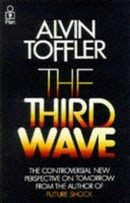
 3
3
 9
9
 0
0
